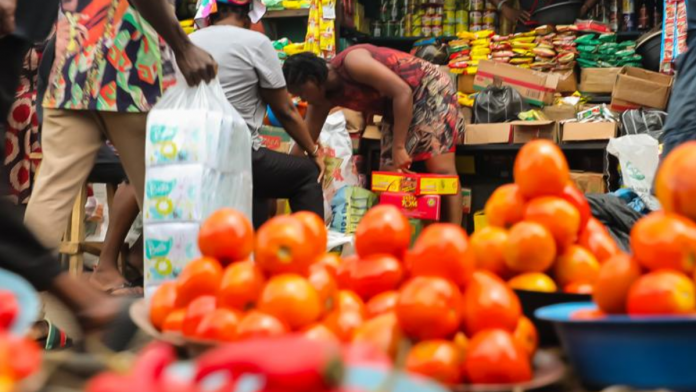News in brief:
– Nigeria’s food inflation rate surged to 31.52% in October 2023, up from 23.72% in the same month last year, with price increases affecting staple items.
– Concerns persist about the effectiveness of government measures to alleviate the situation and make food affordable.
Nigeria’s food inflation rate soared to 31.52% in October 2023, a significant increase from 23.72% in October 2022, according to the latest data from the National Bureau of Statistics (NBS).
This rise has been attributed to price hikes in various food items. These include; bread and cereals, oil and fat, potatoes, yam. Others are; fish, fruit, meat, vegetables, and milk, cheese, and eggs. Although October numbers for food prices is not yet available, we compared the stats from September 2023 to the same month a year ago and the result was alarming, October’s may show worse.
Ten Nigerian food items that saw the biggest price changes between September 2022 and September 2023.
Follow @AgricJunction for more. pic.twitter.com/yUxBTK9AMd
â The Junction (@AgricJunction) October 30, 2023
Despite the overall increase in food inflation, there was a slight decline from September 2023’s month-on-month rate of 2.45% to 1.91% in October 2023. This moderation was primarily driven by slower price increases in fruits, oil and fat, coffee, tea, cocoa, bread, and cereals.
However, the average annual food inflation rate for the twelve months ending October 2023 stood at 26.33%, a substantial 6.50 percentage point increase from the average annual rate of change recorded in October 2022 (19.83%).
Additionally, geographical variations in food inflation were also observed. Kogi, Kwara, and Lagos recorded the highest year-on-year food inflation rates in October 2023, with 41.74%, 38.48%, and 37.37%, respectively.
Conversely, Borno, Kebbi, and Jigawa experienced the slowest year-on-year food inflation rates, at 24.41%, 24.90%, and 25.10%, respectively.
Regarding month-on-month food inflation, Yobe, Sokoto, and Jigawa exhibited the highest rates in October 2023, with 5.35%, 3.68%, and 3.45%, respectively. On the other hand, Edo, Katsina, and Rivers recorded the slowest month-on-month inflation rates, at 0.95%, 1.03%, and 1.10%, respectively.
These discouraging figures continue to rear heads despite the Tinubu-led administration’s many promises of making food more available. One of the government’s major targets has been financing dry season farming to forestall expected scarcity and price hikes usually caused by Nigeria’s overdependence on rain season farming.
The results of the government’s injections may be months away when farmers start to harvest their crops and should translate to lowering food prices. Will this happen? Stick with up as we keep track of this data and more.



